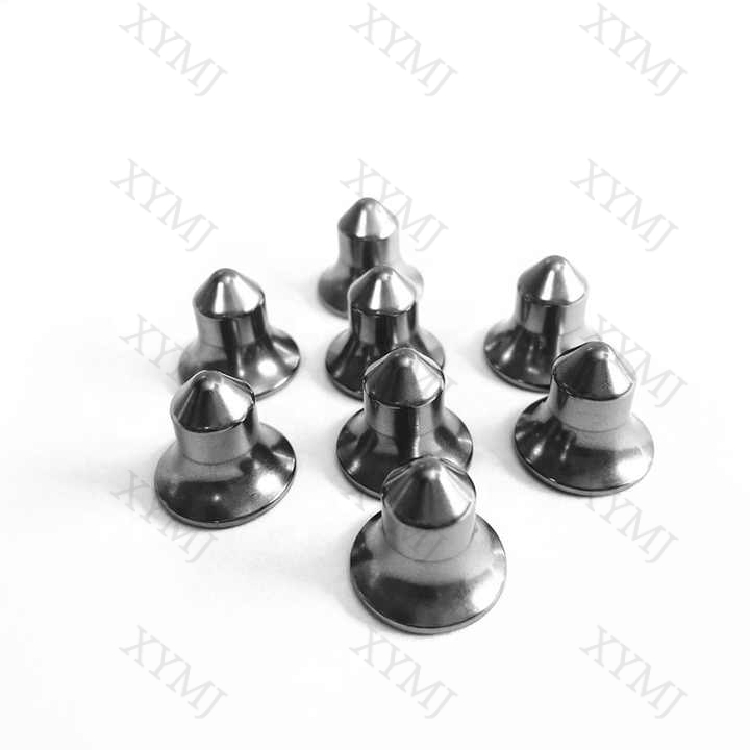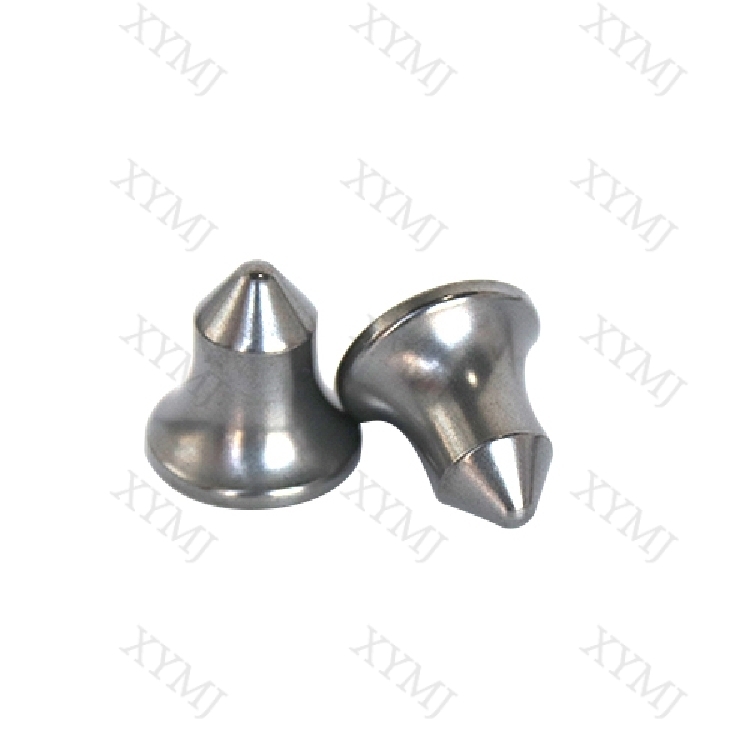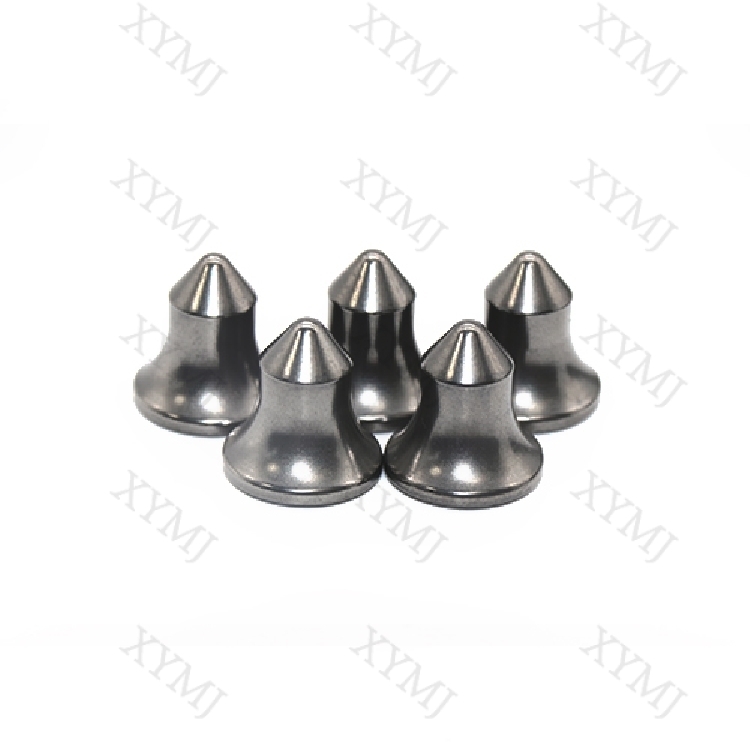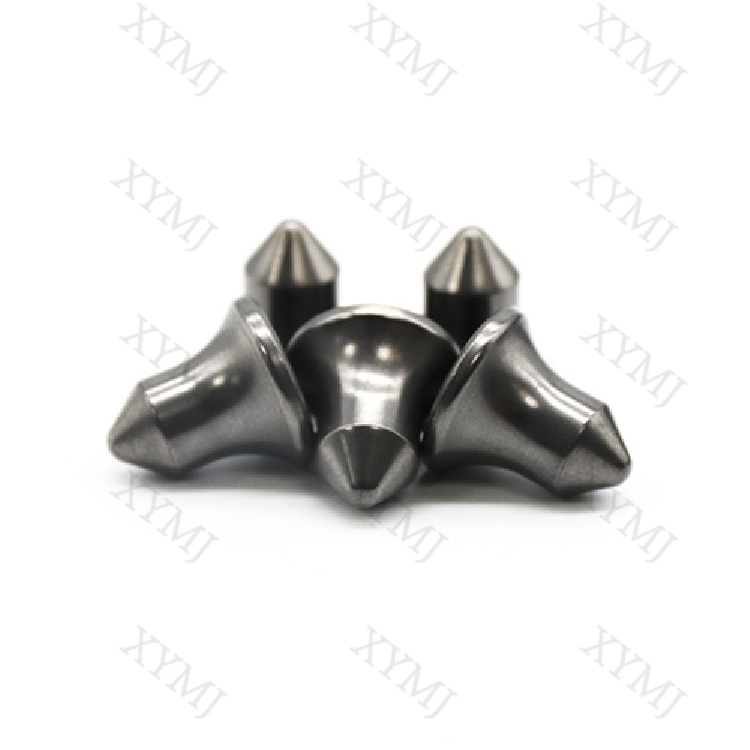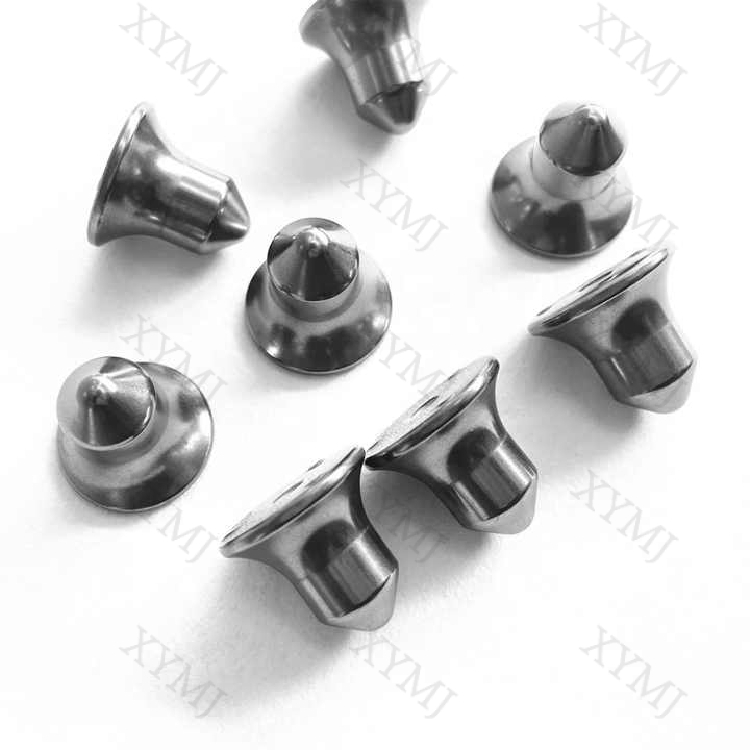Product Description
“Tungsten Carbide Milling Roads Button” refers to the carbide cutting teeth used in road milling machines. Usually, they are hemispherical or cylindrical, and their shape is similar to a “button”.
We can see them in road repair and maintenance scenes. People use road milling machines to strip off the aged asphalt layer in preparation for resurfacing; they can also be used for municipal engineering projects such as removing old traffic markings, milling the surface of concrete runways, leveling the road surface around manhole covers, and excavating trenches.
Therefore, we can imagine that these milling roads buttons are the core consumables of road milling machines and need to withstand high-frequency wear. In the field of municipal engineering, workers choose carbide as the raw material for these cutting teeth in order to achieve efficient and low-cost road milling operations.
The wear resistance of carbide is 50-100 times that of steel parts. In the process of road construction, these “buttons” are the most critical and most severely consumed parts, and need to withstand high and mild wear and impact. After replacing with the carbide milling roads button, the maintenance frequency of the road milling machine has been reduced, and the construction cost has been effectively controlled, which is expected to be reduced by 40%.
Advantages of Tungsten Carbide Milling Roads Button
- High Hardness;
- High Wear Resistance;
- Impact Resistance;
- High Cost-Performance;
Types of Tungsten Carbide Milling Roads Button
- Hemispherical: This is a universal button, suitable for asphalt and roads containing a small amount of gravel;
- Conical: Strong penetration, used for concrete or high-hardness composite roads;
- Flat top: Reduces debris splashing, suitable for urban fine operations.

